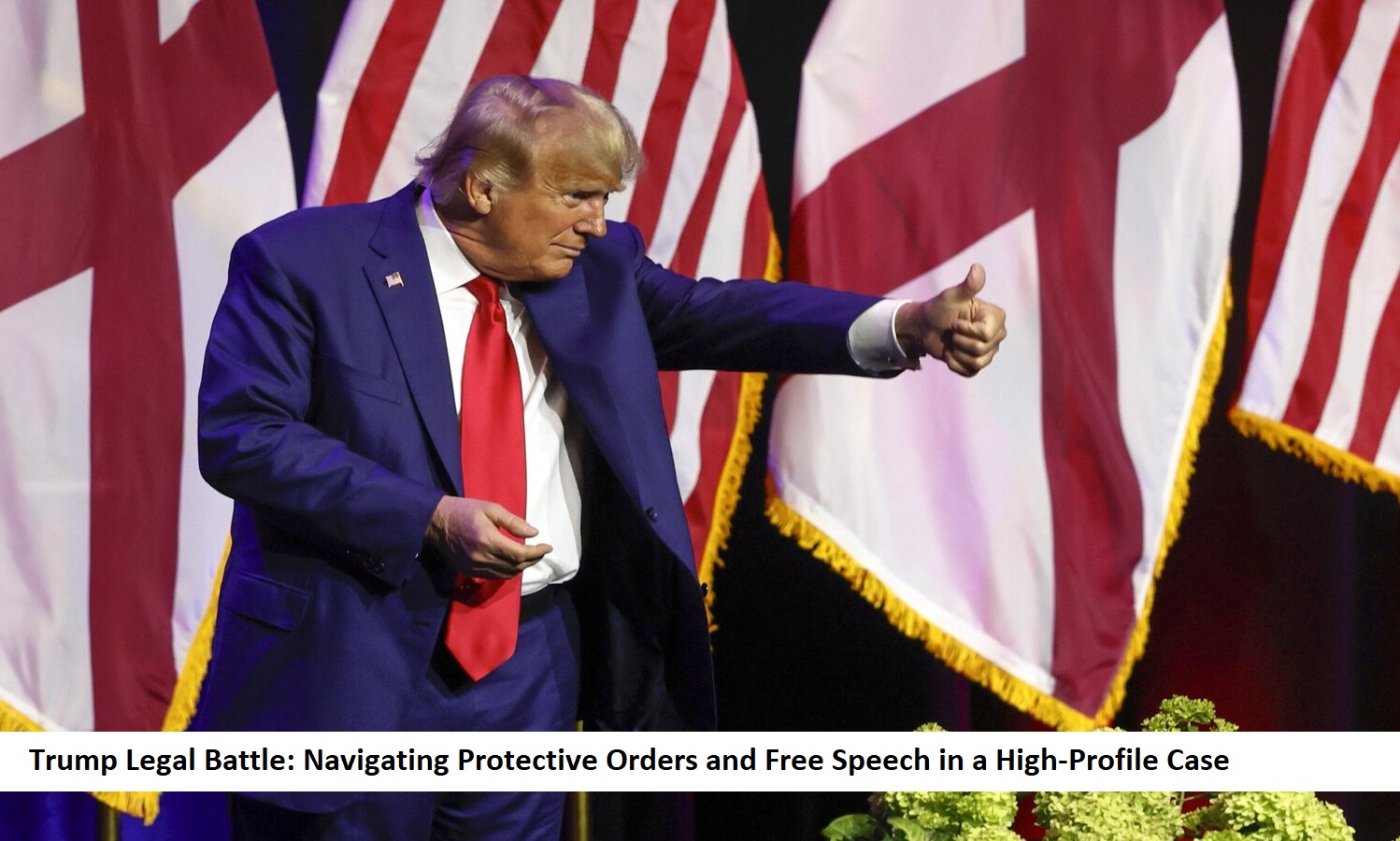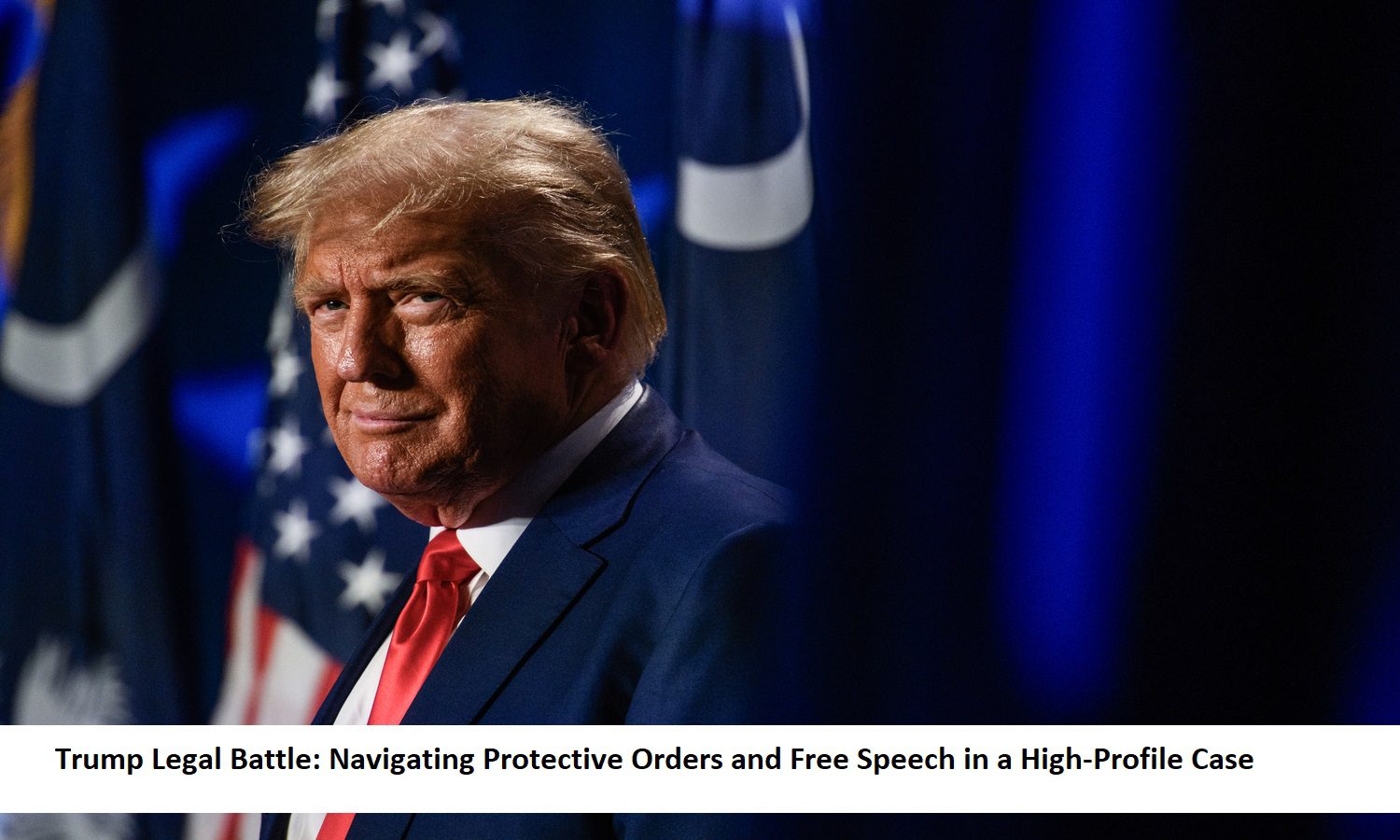Trump Legal Battle: The case against former President Donald J. Trump, accused of trying to affect the 2020 election outcomes, begins with a standard stage in high-profile criminal cases: dealing with the massive volume of discovery information.
The special counsel requested a protective order to limit Trump’s legal team’s discovery paper access. These lawyers went over and beyond by mentioning Trump’s social media threat the same day. “IF YOU GO AFTER ME, I’M COMING AFTER YOU!”
The prosecution didn’t try to silence Trump over the tweet. Still, they used it to fight for clear regulations to prevent the former president from utilizing discovery information to make online pronouncements. This reveals Trump’s odd behavior. Trump needs a protection order because he yelled at criminal suspects.
A security order is crucial because Trump publicly insults anyone involved in his legal issues. He recently went mad on social media, calling the special counsel “deranged” and demanding Judge Tanya S. Chutkan resign.
Trump’s lawyers contended the government’s request violated the First Amendment. Their case included a protection order. They stated limiting Trump’s speech is a felony. This strategy emphasizes their fundamental claim that Trump’s pursuit of free speech is unjustly criminalized.
Prosecutors informed Trump’s lawyers they were utilizing the protective order to get a media-driven trial. Conflict escalated. I wonder if I should defend this claim in court or the media.
This court case defines security orders. Criminal investigations reveal much. Interviews, grand jury statements, and communication devices were taken. This material helps defense lawyers develop court strategies, pretrial motions, and defenses.


Protective orders uphold the law. These orders, which range in severity, ensure that evidence is used properly and just for the case at hand and doesn’t leak too soon. The government’s election tampering protection order protects private information from reaching non-participants.
This ruling prevents Trump from accessing or sharing private data. Criminal evidence aids court preparation, not media campaigns.
Judge Chutkan’s role expands. She must resolve the protection order before continuing. The safety order’s powers are unknown. The judge will decide the law-free speech balance.
The story reveals how the government, media, and First Amendment interact, even as the tug-of-war continues. The lawsuit against Donald J. Trump is still in court. Therefore, it is still being determined how this intricate dance between the judicial process and public speech will affect it.
READ MORE: Climate Crisis Deepens: Copernicus Reveals Alarming Rise in Air and Ocean Temperatures
Our Reader’s Queries
What is Trump’s immunity appeal?
A panel of three judges listened to arguments about Trump’s assertion that he cannot be charged with a crime for his attempts to overturn the 2020 election. Trump has stated that he will challenge the judge’s decision to set a trial date for March 4.
Who is Trump’s lawyer?
Attorney D. John Sauer, who previously served as Missouri’s solicitor general under Josh Hawley and Eric Schmitt, represents Donald Trump.
What did Donald Trump do?
Trump propagated conspiracy theories and articulated numerous erroneous and deceptive statements throughout his campaigns and presidency, reaching an unparalleled level in American politics. A substantial number of his remarks and decisions have been labeled as racially charged or racist, with others being deemed as misogynistic.

